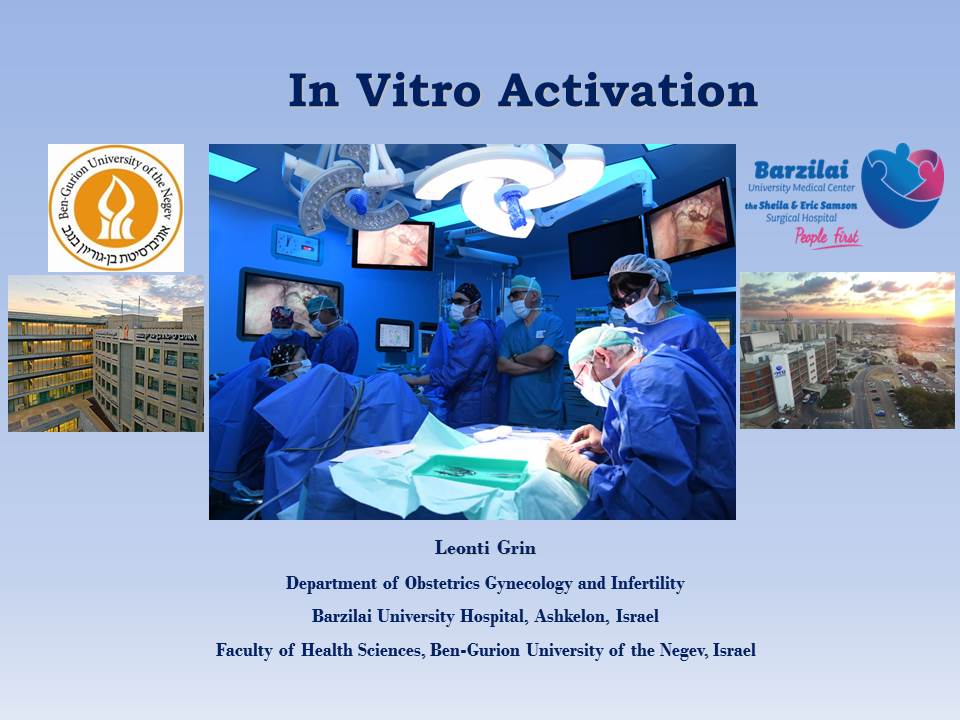Dr Leonti Grin – Advanced Inferitility treatments specialist
IN VITRO ACTIVATION of ovarian follicles (IVA) a new infertility treatment for women with diminished ovarian reserve or early cessation of menstruation.

Women with a low ovarian reserve or early menopause (under the age of 40) experience poor response to fertility hormones (gonadotropins) which result in low pregnancy rates. A new promising infertility treatment focusing on the "young" developing follicles is showing promising results.
The method of ovarian activation was developed by a group of investigators at Stanford University with the leading investigator Kazuhiro Kawamura in 2010. Following the use of this method, the world’s first child was born in Japan in 2013.
Since then, several countries have started to use this method (Japan, China, Spain, Poland, Mexico, Russia, India). Several children have already been born as a result of this method and there are different variants of the original procedure.
The TIME magazine (USA) has nominated this method as one of the ten best medical achievements in the world.
We started to perform activation of ovarian follicles in Israel from February 2020 after Dr. Grin completed his fellowship under the supervision of Prof. Kawamura in Japan. With the first pregnancy achieved in July 2020.

This method includes a minimally invasive surgery. In this procedure we remove a small part of the outer ovarian tissue, perform in vitro activaton and auto-grafting back to the patient. After the procedure we expect to see an improvement in follicle growth, ovulation rates, and an increase in the number of oocytes retrieved for IVF. both spontaneous and IVF pregnancies have been reported worldwide after this procedure.
Potential candidates for this procedure:
1) Women under 40 years old with a compelte or partial cessetaion of menstruation (Amenorrhea)
2) Women with diminished ovarian reserve (Low AMH levels)
3) Women with poor results from traditional assisted reproductive technology treatments. including failure to retrieve oocytes for IVF (empty follicles)
4) If follicles do not grow during stimulation despite the use of high doses of gonadotropins (Gonal-F, Pergoveris, Menopour)
Our results show that approximately 50% of women who underwent IVA procedure, could benefit from improved reproductive outcomes. Increased number of oocytes, for fertilization and embryo transfer. Some women regain menstrual cycle function for a certain period of time.
The risk for surgery complication is extremly low (below 0.5%)
There are no reported complications specific for IVA. There is no evidence that IVA raises the risk of cancer in women (the procedure is being done for over 10 years). Till now, less than a thousand cases been carried out in the world. Therefore, it is too early to draw definitive conclusions on its effectiveness and potential long term risks.
For additional information please contact us at leonti.grin@gmail.com
